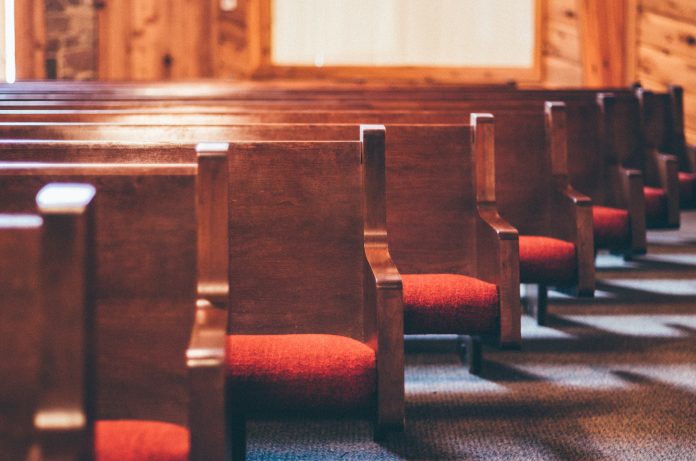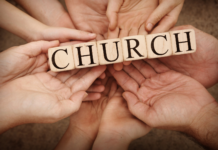Pastor, a little word of advice for you: Next time you’re seeking God for direction for your church, just take a moment Sunday morning and survey the crowd. Look out and recognize the community He’s put you in. This will serve as a hint to your purpose and as a sign of the power of your members coming together in unity.
In 2018, God revealed to me that I needed to pay attention to the makeup of my church, because its diversity would speak to our mission. Our church, Tree of Life, is located in a town that is not very diverse. It has a 2% black population, 25% hispanic, and the rest are white. But the church has a population that is 15% black, 35% hispanic, and 50% white. Because we’re right on the edge of New Braunfels, TX, close to San Antonio, we have been gaining members from outlying communities. That’s interesting to me!
Sometimes the most obvious things, the things in front of us, are the hardest to recognize. We’ve experienced a lot of racial tension and injustice in the US over the last several years, but in 2020 it popped up in a measure I’ve not seen before. I knew there was something I needed to do, and that was a challenge because I wasn’t sure what to do! There’s so much sensitivity surrounding the topic, and I wanted to be sure I was staying in line with what God wanted me to do and say — and Who He wanted me to reflect.
For a long time I have seen the diversity of my church increasing as the church grew, but I never really addressed it. I just thought we were fortunate to include so many people groups. It wasn’t intentional! Then, God dropped something in my heart: I would stand up on stage and I would celebrate our diversity. I would celebrate young and old, resourced and under-resourced, and every ethnicity –– all kinds of unity in all kinds of ways. God said, “Instead of celebrating diversity, why don’t you start championing it?” This was intentionality.
I took the step and began to champion diversity in 2019. I didn’t know God was preparing us for the difficult season of COVID-19 that was lying just ahead. I only knew I needed to address it in my church before I could address it outside of the church. The church is the starting point.
We know division or disunity is always a tactic of the enemy. His plan is to divide marriages, families, friendships and churches. Division is one of his greatest tools.
In my Bible studies, I was drawn to Matthew 29, which says, “How can anyone enter a strongman’s house and carry off his possessions unless he first tie up the strong man?” If you flip this scripture, I think that’s what the enemy has been doing. He’s entered our house, the church, and tied us up in division. He’s debilitated our strength, our unity. Without unity, we’re left powerless, unable to create real or lasting change in this world.
When I started seeing the impact upon the church of all the things happening outside the church, I realized I needed to address our unity right then. One of the most powerful ways I have discovered to address unity is to speak about our purpose. Purpose unifies us. Purpose is based on truth, and not just truth in general but the Truth, Jesus. We all carry a sense of truth in us. It may be our truth, the truth of the day, culture’s truth or racial truth, if you will, and it’s all so subjective. But the Truth is objective, and it operates outside of us. This Truth has to be dominant. We must acknowledge our purpose is greater than ourselves.
We all know in John 17 how Jesus prayed that He and His Father would be one, and that we would all be one like They are one. What’s interesting in that scripture is the oneness He’s talking about doesn’t mean sameness. It means that we can all come together with our differences and diverse backgrounds in oneness and purpose.
I addressed my church. I taught them the oneness of coming together for a purpose greater than ourselves. I had to check myself as to how I would relate and communicate purpose to our people. If there was a tension point or an obvious lack of unity, I saw it as a lack of clarity of purpose more than the differences among people.
For most of my life, I spent time with people different than me, and I never considered myself exclusive to one group. I think we all think that. But with all that’s happened in the US in the last year, we’re forced to examine ourselves. We have to hear different sides of the story we may have never known existed. To be quite honest with you, I had to evaluate myself to see where I had biases I didn’t even realize. I didn’t feel like I grew up racist, but we all grow up as products of our environment, and each of us probably has biases. Unless we spend time hearing another side of the story, we don’t even realize they’re there. So all of this preparation to address our people caused me to honestly assess myself, to accept that I just might have unintentional biases I needed to consider before I could move forward.
As I sat purposefully listening to the stories of people not like me, I began to see reality — something I could not see before because my eyes weren’t opened. Then, when I went to speak, I was able to relate with what others were experiencing in life. It was a big turning point for me and our church, and I know it will be for you too. So my advice to you is to consider the unity of your church, look inward to see where disunity may be hiding within you, and then foster unity of purpose so that your church can be healthy and your community can be reached.







